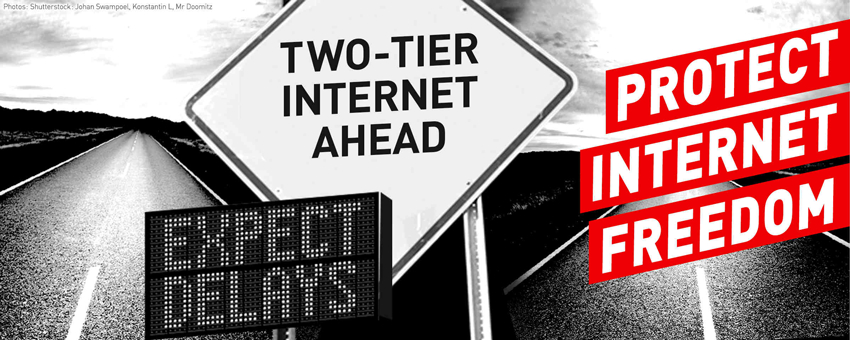Dutch students have gathered more than 300,000 signatures needed for a referendum on the new privacy laws that will go into effect on Jan 1, 2018. The new Information Act - signed into law earlier this year - is now meeting opposition from students.
The current Act on Information and Security Services dates back to 2002 and was in need of revision according to the Dutch legislature. The new ‘data tap’ act has already met severe opposition from human rights watch organizations, journalists, lawmakers, independent watchdog organizations, and the European Commission for Human Rights.
Dutch lawmakers - in their infinite wisdom - have nevertheless decided to push the law into effect on January 1, 2018, just a few months before the municipal elections of March 2018.
If one is not guilty, then one has nothing to hide or to fear - This is the reasoning by which an ever increasing web of measures, rules and regulations is being sold to the public at large. What about the constitutional dictum “not guilty, unless proven”?
What will it take before all of us are guilty because we somehow have ended up in the fishing nets of the governmental data trawlers?
In all fairness, the previous Act of 2002 did not include nor foresaw the explosion of social media and mobile data traffic; an update was needed to enable law enforcement to tap into the online data streams of suspect citizens.
Yet the new law dramatically expands the reach of the Dutch Intelligence Agency (AIVD).
Reportedly AIVD has asked telecom providers to calculate the cost for a data tap on a city of 400,000 residents in order to collect data from 200 users. It is not known whether the data tap will actually take place once the law is in effect or that this request was merely a hypothetical exercise. The request implies however that telecom providers have to comply, lest they themselves become suspect of breaching the law.
The new law doesn’t stop there. In applicable cases AIVD will be allowed to hack the account of suspect citizens, including - mind you- including the accounts of friends and family. What if the suspect involved has a large family or internet following. Such a hacking operation could affect thousands of people. Where does it stop?
The new law doesn't stop here, unfortunately. Intelligence services are allowed to keep the records for up to three years.
Furthermore, companies and organizations may volunteer to offer up their databases for third-party access. It doesn’t take much to imagine that the AIVD, and possibly foreign agents, will become major customers.
Speaking of foreign agents, AIVD will be allowed to share unfiltered data collected from hacks regardless of its content. This allows for data collected from Dutch citizens to be accessed by the likes of the NSA and British or German intelligence services. What about Russian intelligence, would they gain access to?
Now, who is to say that the data searches will be limited to Dutch citizens only? The Netherlands forms one of the major global internet communications hubs. Data traffic to and from the European continent flows to a large extent via Dutch data centers.
Lawmakers have provisioned oversight in terms of independent oversight boards but these institutions lack transparency.
Is this the price to pay for Holland’s admission to the G20 council?
Don’t think this is just a localized European affair, however. The internet is globally interconnected. The relative freedom and independence of the internet are under attack from all sides in terms of net neutrality, privacy, and access.
Dutch students - and hopefully students elsewhere - have realized this. A small group of students organized themselves and started petitioning for a constitutional referendum in early September of this year. Within 6 weeks and with still one more week to go they have passed the 300,000 signature threshold, which allows for an 'advisory' referendum.
The Elections Board will make a formal announcement on November 1. If everything goes according to plan the referendum vote will become part of the municipal elections scheduled for March 21, 2018. 3 months after the new law has come into effect...
Dutch constitution allows for an advisory referendum which will need a 30% turnout at the time of elections. A turnout lower than 30% will have no effect as is a ‘no’ vote (or ‘yes’ depending on how the question is posed). A majority vote against the new law will force the legislature to take the law into re-consideration and possibly retract the law completely.
The reconsideration of the law is binding, yet the decision-making process that ensues and the revised decision thereof is, however, 'not binding'.
There is a precedence and it forebodes not well.
The previous advisory referendum was held in 2016 and dealt with a vote on the Association Agreement between the EU and Ukraine. The turnout in that election was 32% of which 61% of the public voted against the treaty.
This caused a major embarrassment for the Dutch Gov as the election result singlehandedly obstructed the EU from entering into this agreement. Eventually, the concerns of the Dutch citizens were summarised in an addendum to the agreement and the treaty went into effect anyhow.
Still, an advisory or mandatory referendum is an effective and important tool for citizen rule. As it should in any democracy. Matters of grave importance and consequence to society should be submitted to the general public by default.
The effectiveness of referenda and the threat it poses to the political ruling class may be further deduced from the fact that major parties in Dutch politics now want to get rid of it at all or at least raise the turn-out bar to 50-60%.
Some things never change
One other thing of note was the flagrant absence of mainstream Dutch news media in reporting on this matter, whereas there was plenty of opposition from individual journalists and journalist organizations. The weather report may have contained more detail.
Now, this is admittedly an exaggeration. Yet, whereas the weather report contains up-to-date information on a daily basis and is being reported upon with coloration such as being 'fine', 'fair' or 'bad', the stale abstraction, the un-engaging and un-imaginative manner by which this issue has been reported, stands in stark contrast to its significance.

